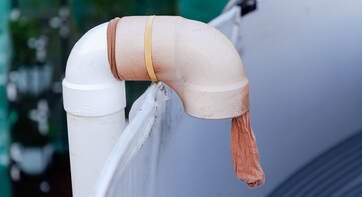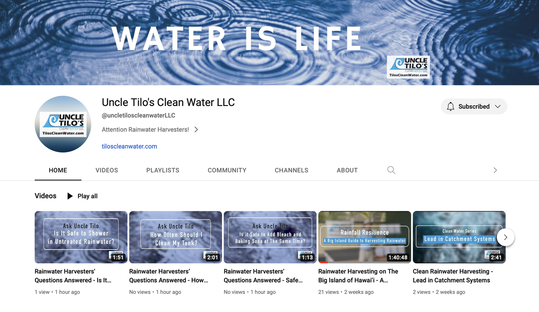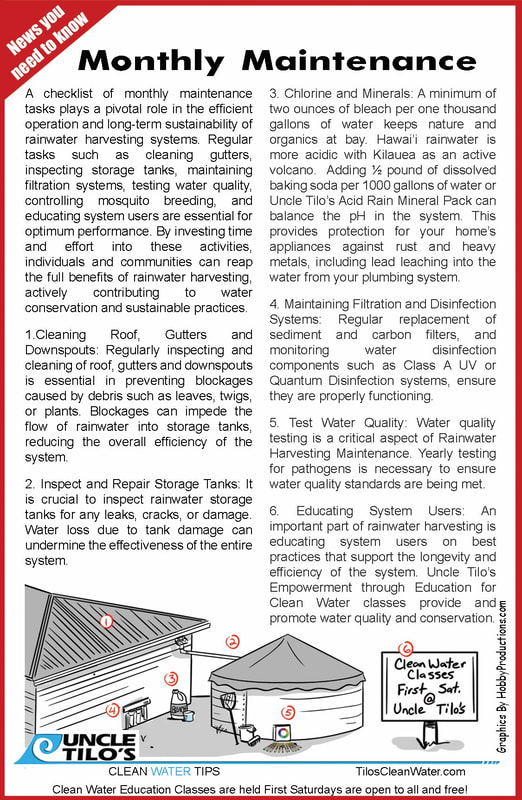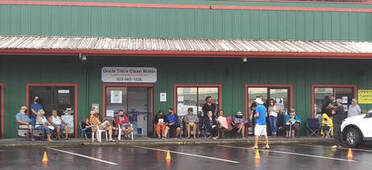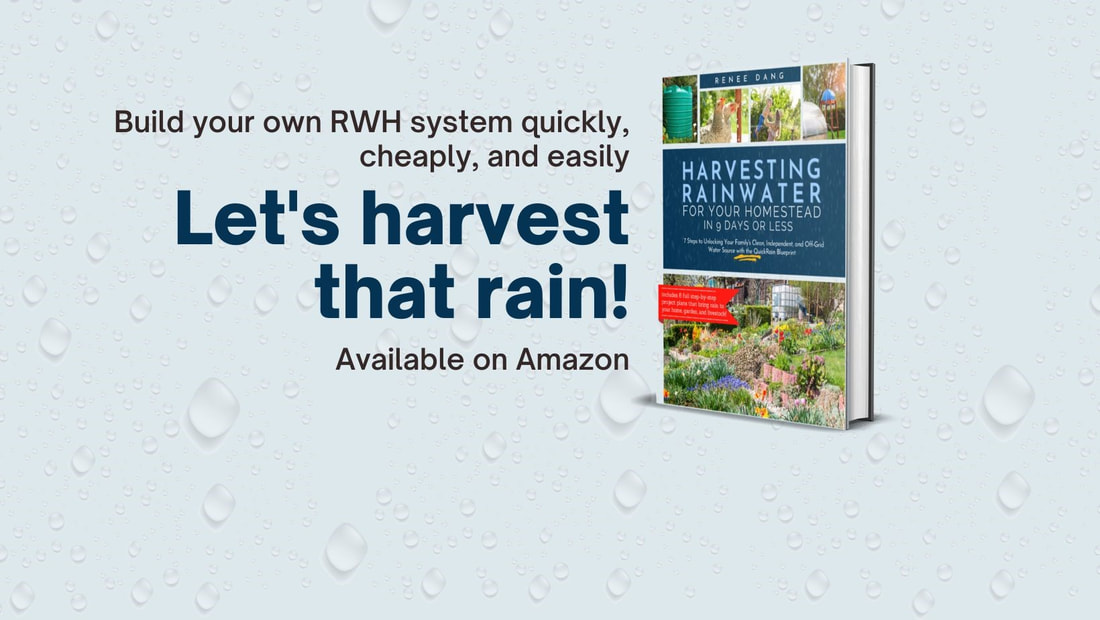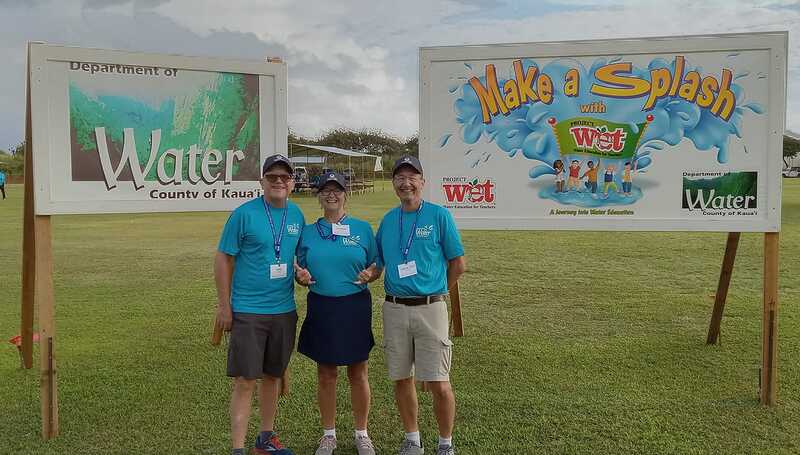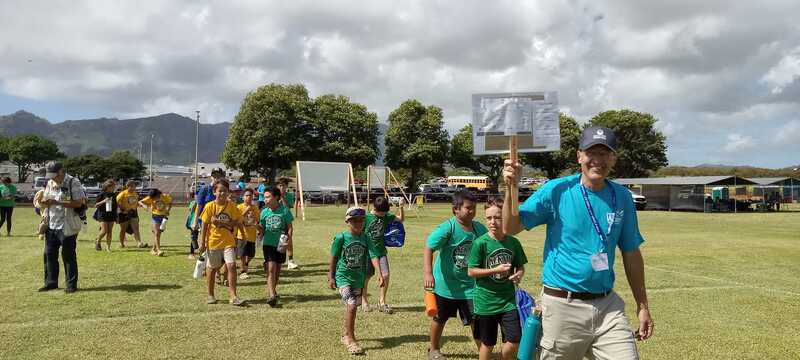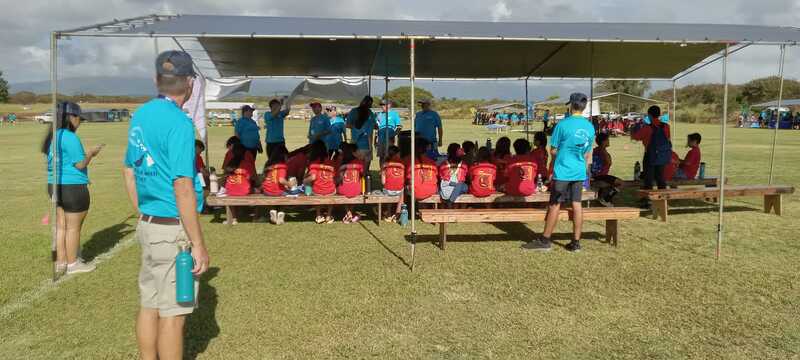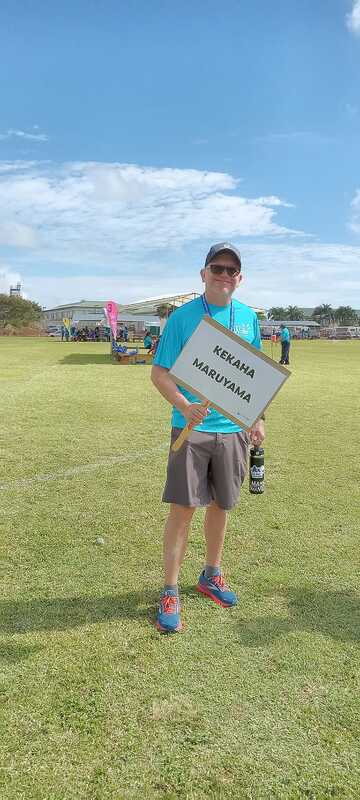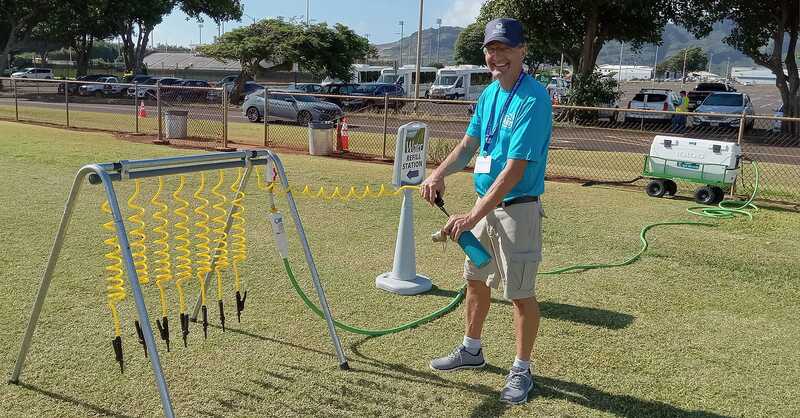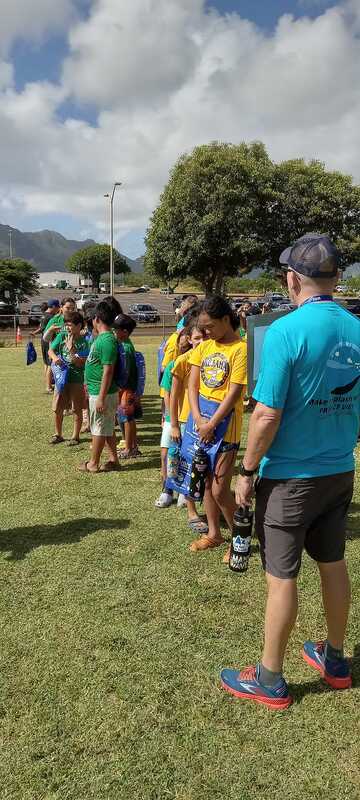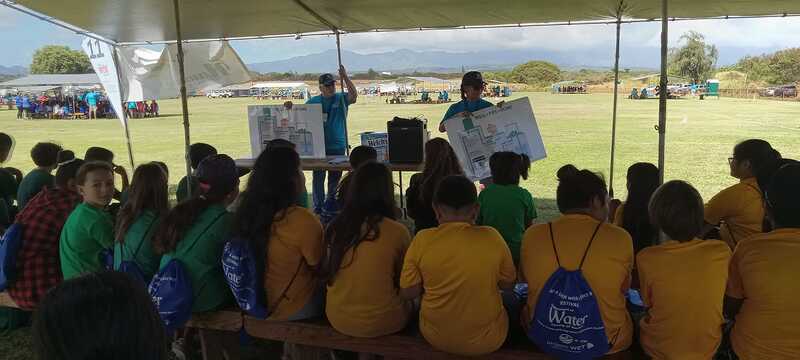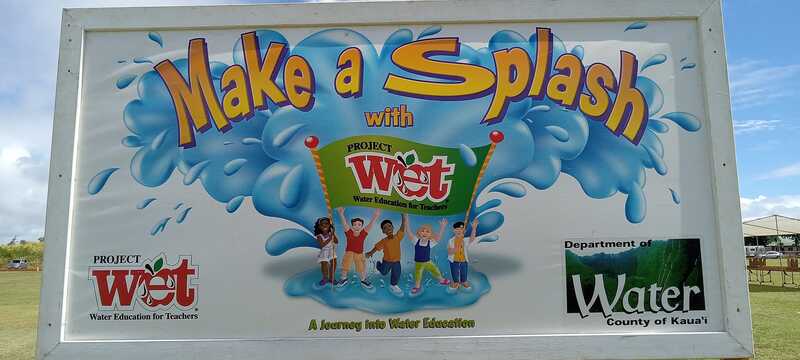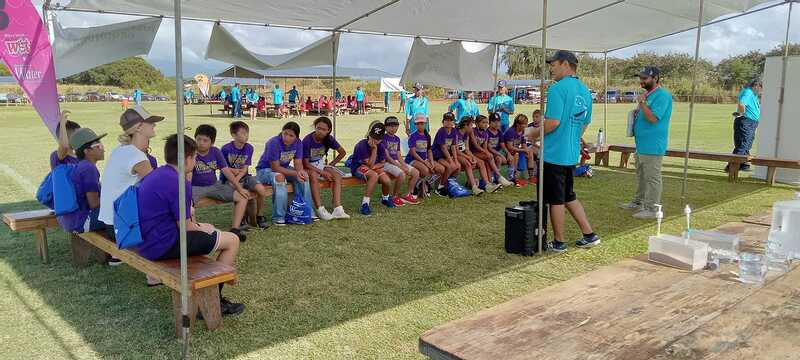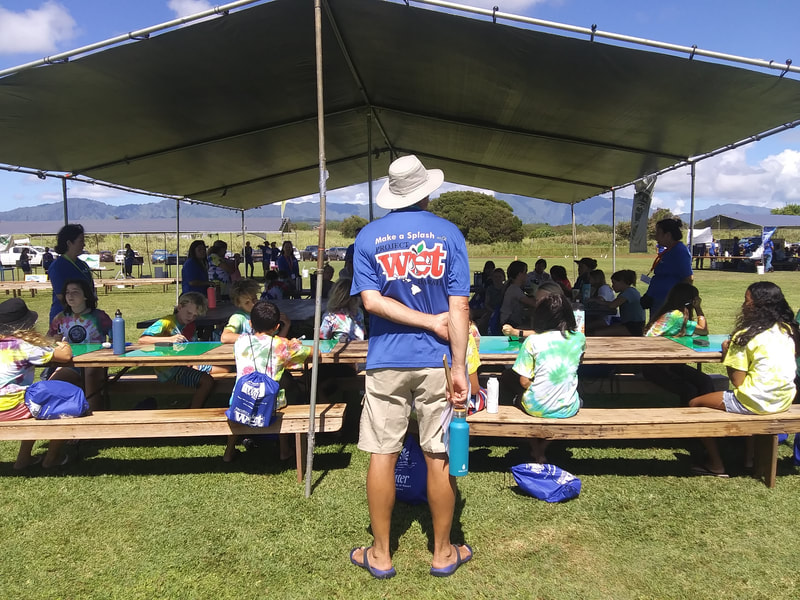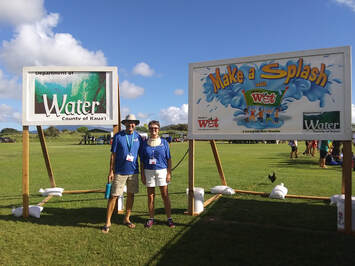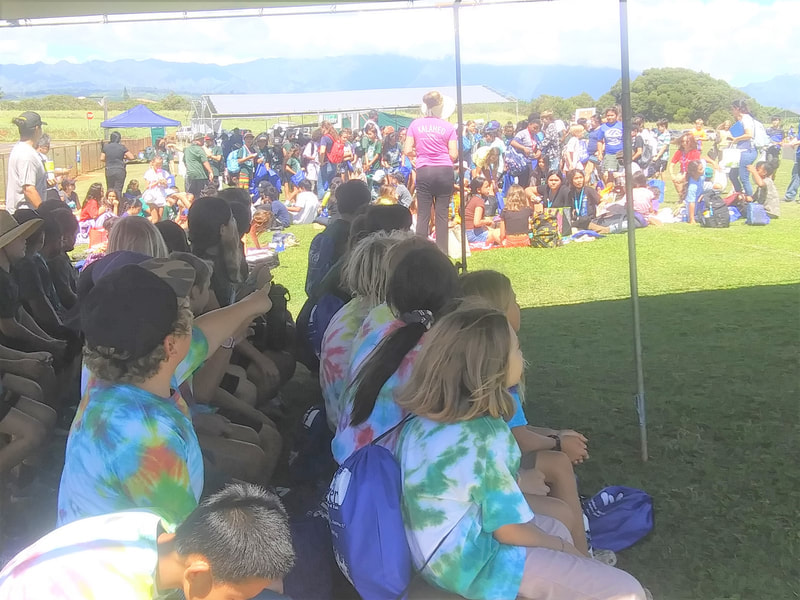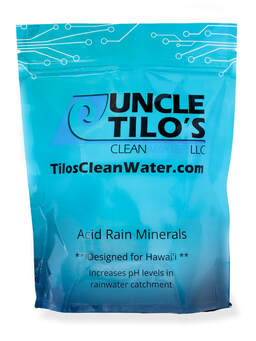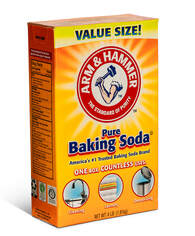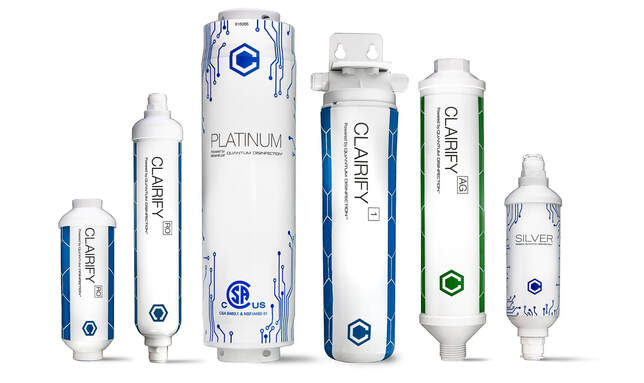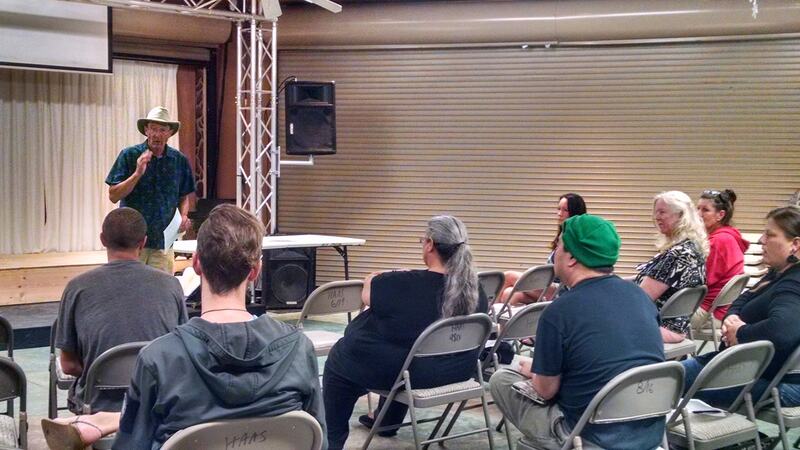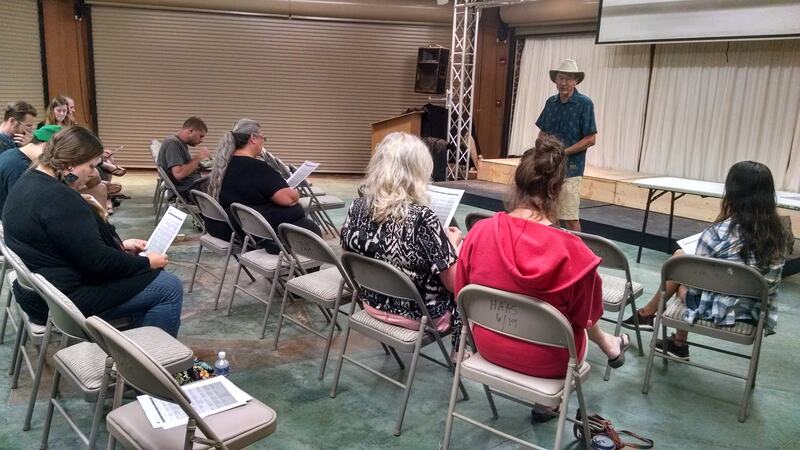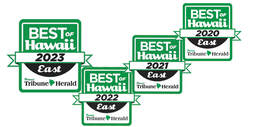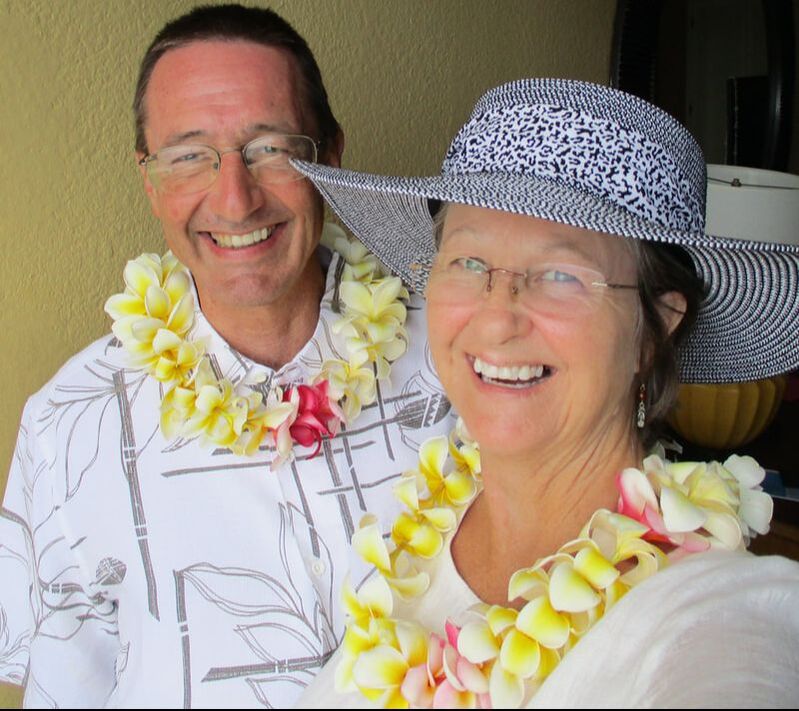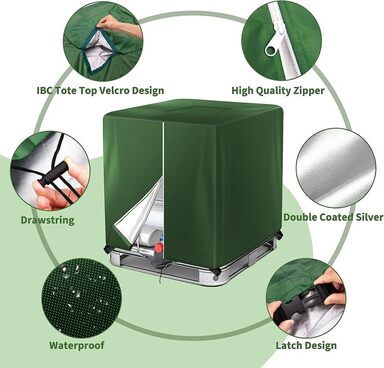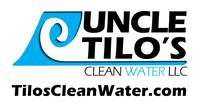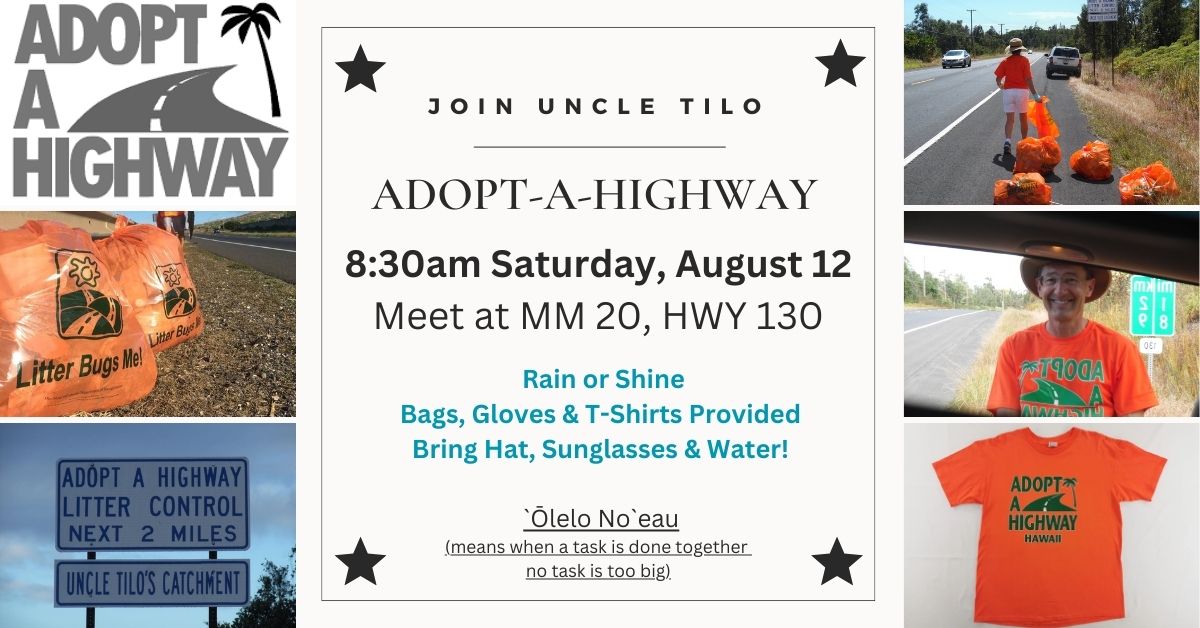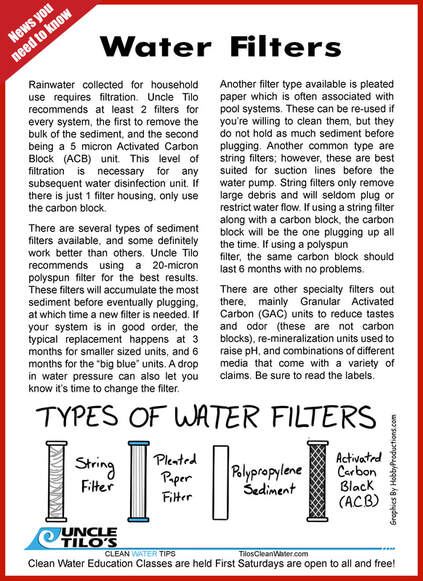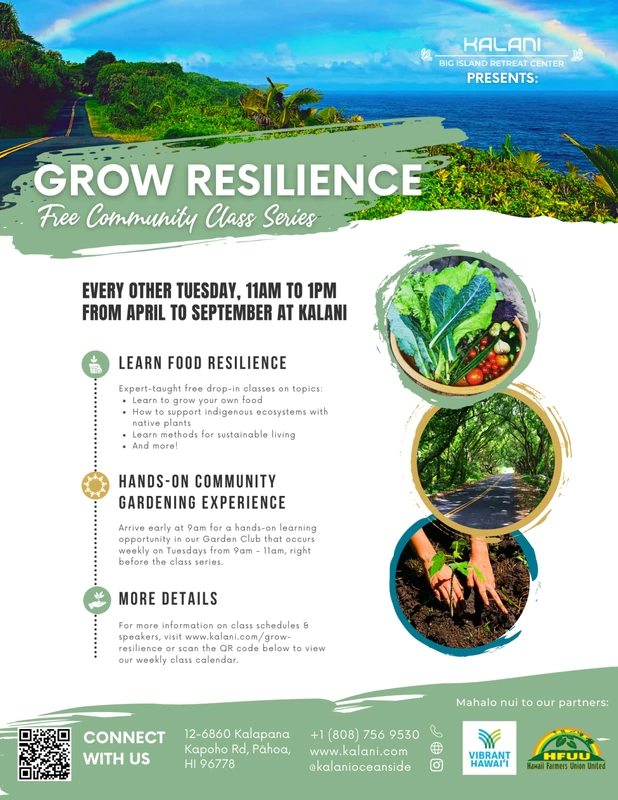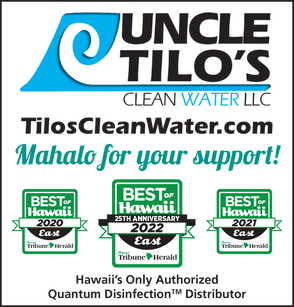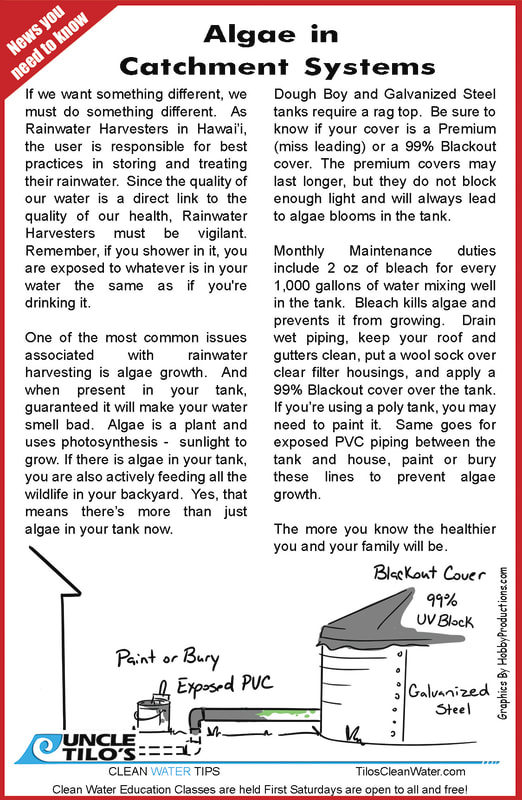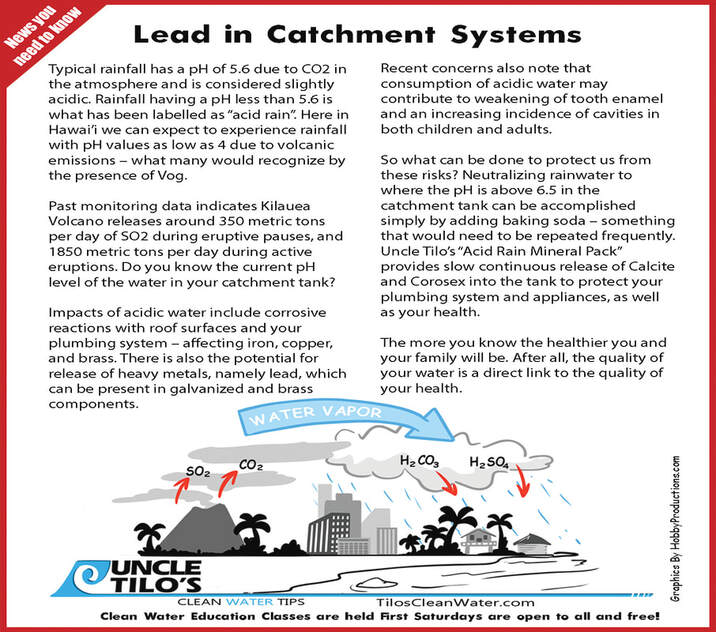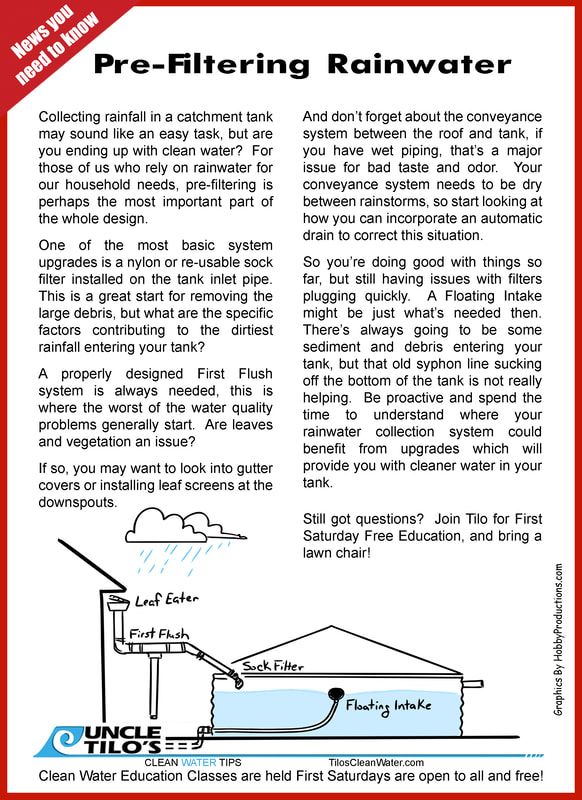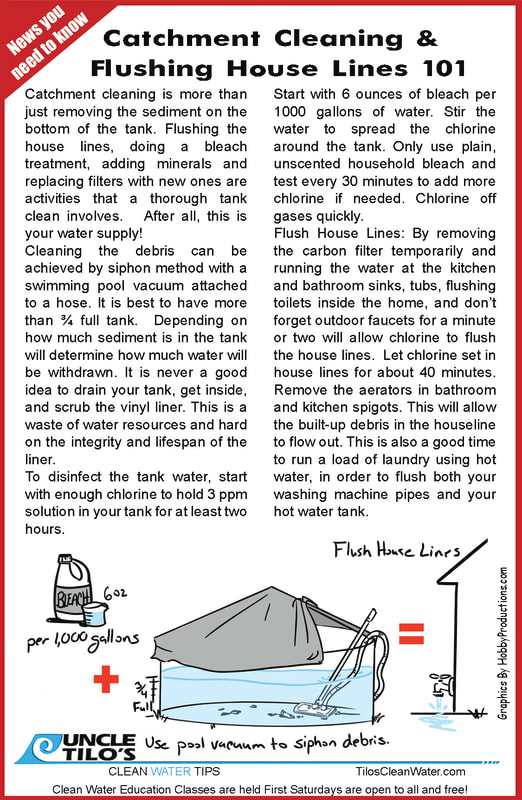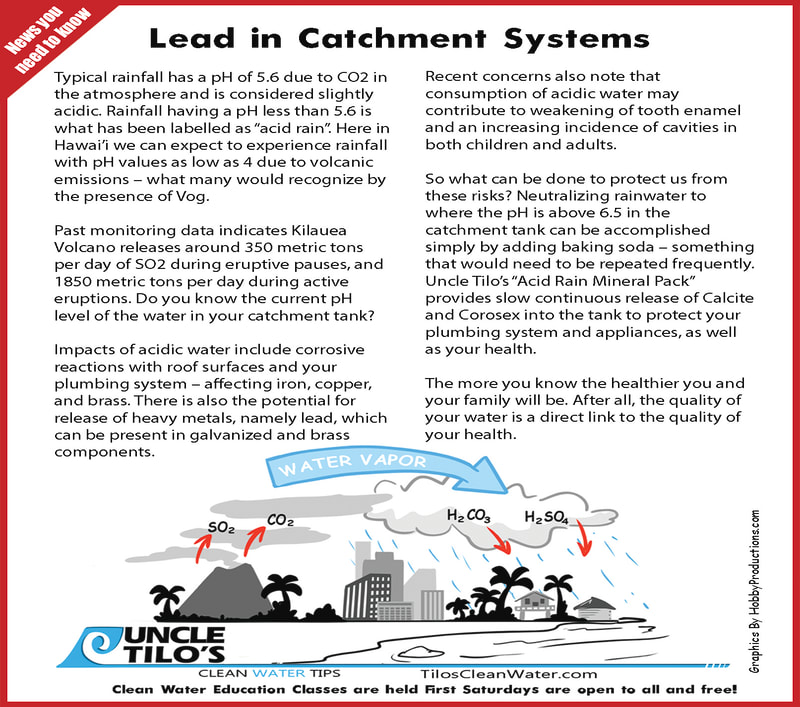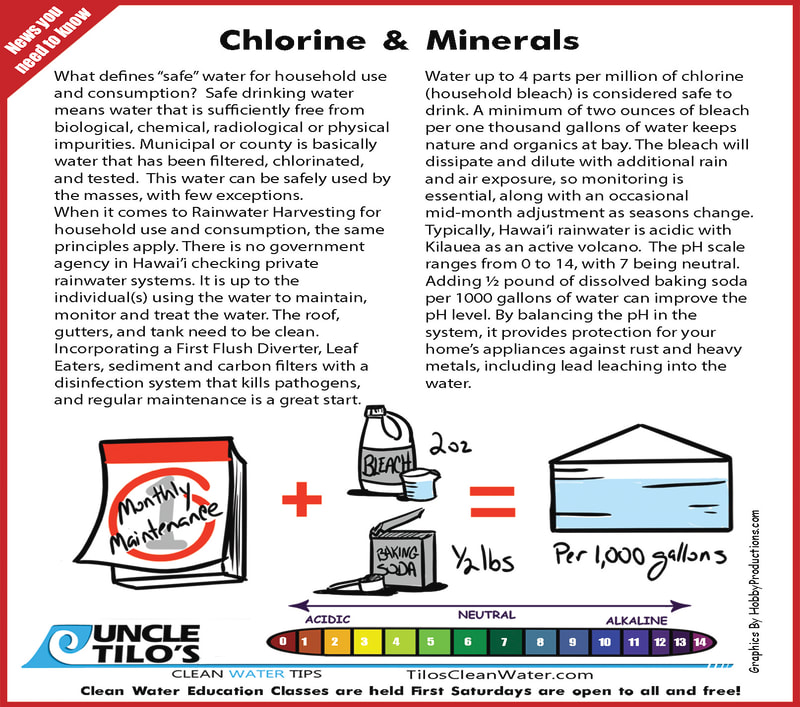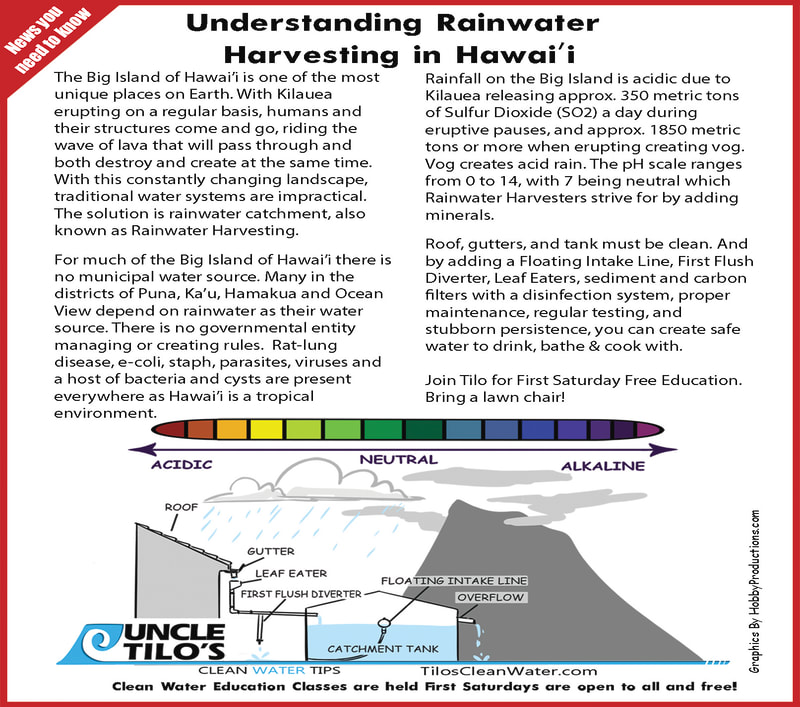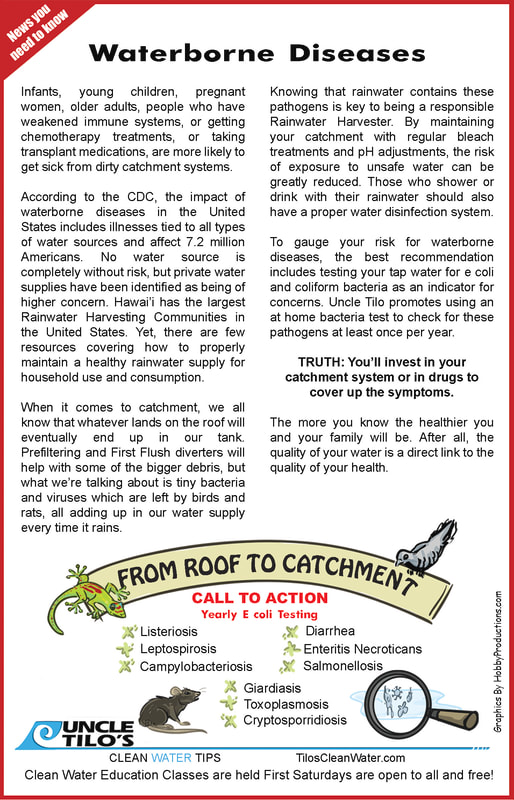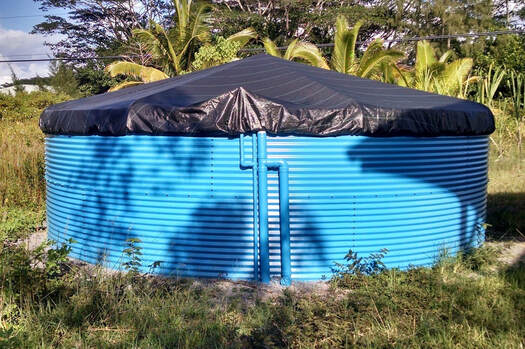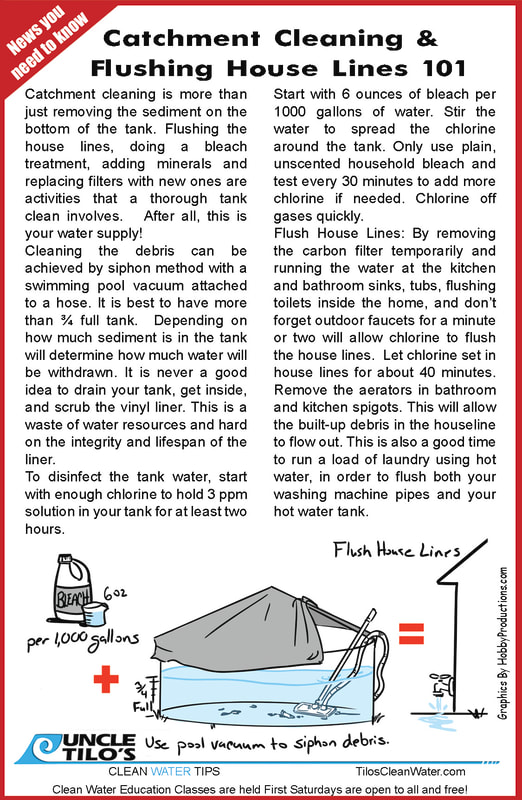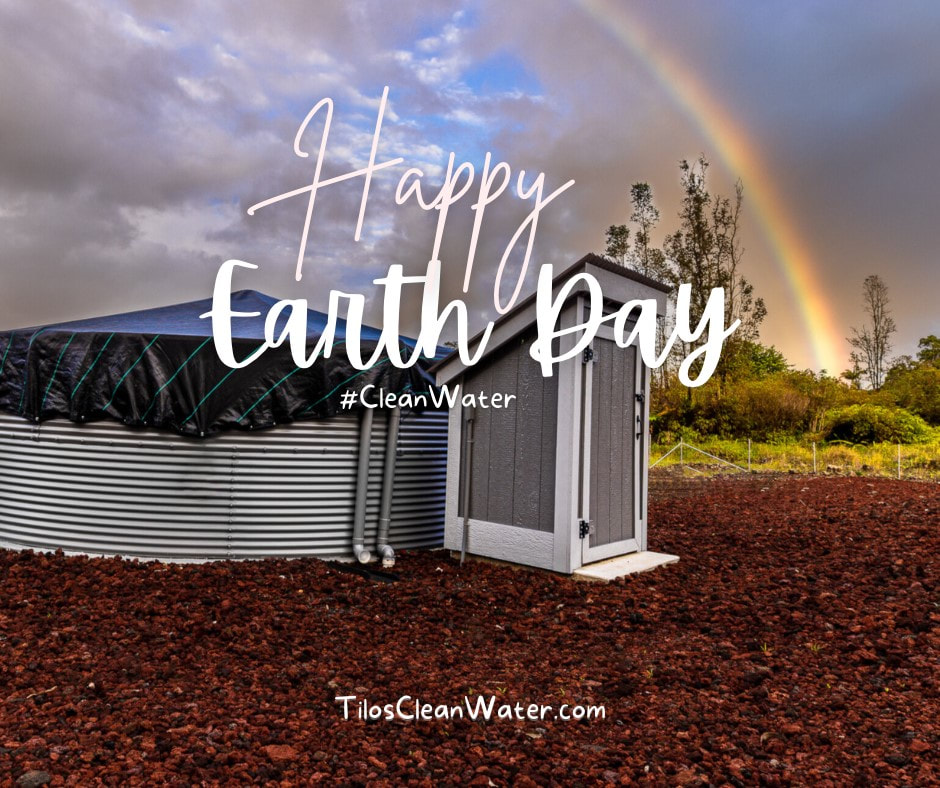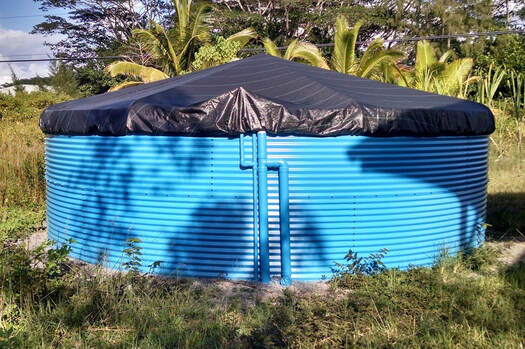|
Simplicity at it's best: Meet the humble nylon stocking, your rainwater's low-cost guardian. Our island's lush landscape, with its abundance of trees and diverse flora, presents a unique challenge when collecting rainwater. Many residents wonder whether pre-filtering their catchment water is necessary. As we'll explore, the answer is a resounding "yes." Let's delve into why pre-filtering your catchment water is so important and how something as simple as a nylon stocking can make a significant difference.
The Big Island's Unique Challenge Hawaii's Big Island is known for its breathtaking natural beauty, from lush rainforests to rugged lava fields. However, this diverse ecosystem also means that rainwater collected from rooftops may contain considerable debris. The canopy of leaves, branches, and bird dropping can accumulate on rooftops, creating a potential challenge for rainwater harvesters. Why Pre-Filtering Matters Preserving Water Quality: When rainwater flows off your roof, it carries leaves, dry grasses, and other debris with it. The debris can end up in your gutter system, eventually entering your catchment tank. Without pre-filtering, the collected water may contain contaminants that affect its quality. Pre-filtering ensures that your water is cleaner and safer for whole-house use. Simplicity of Nylon Stockings: Pre-filtering your catchment water can be simple and inexpensive. A simple yet effective solution is to place a nylon stocking over the end of the inlet pipe leading to your tank. The nylon stocking acts as a barrier, catching all large debris, leaves, and twigs before they can enter your system. One of the key advantages of using a nylon stocking as a pre-filter is the ease of maintenance. When it's time to clean your system, you can remove the stocking and replace it with a new one, and your catchment stays cleaner with minimal effort. This small investment of time and resources can pay off significantly in the long run. To learn more about safe rainwater harvesting check out our YouTube Channel and our Rain Water Harvesting Education Page.
0 Comments
We are thrilled to introduce our new video series that delves into rainwater harvesting on the beautiful Big Island of Hawaii. As we embark on this exciting journey, we aim to educate and foster a sense of community, responsibility, and the need for safe drinking water.
Protecting Our Rainwater Harvesters Rainwater harvesting is a vital source of fresh water for countless families and communities on the Big Island of Hawai'i. However, we must also be mindful of the safety aspects involved in this practice. Our educational videos will emphasize the importance of protecting rainwater harvesters from potential hazards while ensuring this sustainable resource remains pure and uncontaminated. Our Commitment to the Community At the heart of our mission lies a deep commitment to the community. We believe in sharing knowledge and fostering unity among fellow Big Island residents. By offering these educational resources, we hope to empower our community to harness the potential of rainwater harvesting effectively and responsibly. Addressing the Need for Safe Drinking Water Safe, accessible drinking water is a global concern, and the Big Island is no exception. By exploring the world of rainwater harvesting in our videos, we aim to contribute to the solution. Rainwater harvesting, when done right, provides a safe and sustainable source of drinking water, reducing the burden on other resources and helping ensure clean water for all. Our video series will cover a wide range of topics, including the basics of rainwater harvesting, system design, maintenance, and water quality. Join us on this educational journey as we unlock the potential of rainwater harvesting and work together to protect our people and our environment. Together, we can create a more sustainable, resilient, and water-secure future for the Big Island of Hawaii. Stay tuned, and let's make a positive impact, one raindrop at a time. Saturday, October 7, 10am, Pahoa Marketplace, Free. Bring a chair!Our intention is to improve efficiency by teaching rainwater harvesting techniques, systems, and best practices that can help harvesters optimize their operations and increase the efficiency of their water collection and storage processes. This knowledge can lead to better utilization of available resources and higher water yields.
This includes enhanced system design: Our teachings enable harvesters to design and implement more effective systems tailored to their specific needs. They can gain insights into factors such as catchment area selection, storage capacity, filtration methods, and disinfection systems, resulting in improved system performance and reliability. We teach cost savings by sharing knowledge about rainwater harvesting, harvesters can then identify cost-effective solutions and strategies to reduce expenses associated with water supply. This includes using appropriate materials, implementing efficient filtration methods, and optimizing system maintenance and best practices, ultimately leading to financial savings. Community engagement is sharing knowledge and tools about rainwater harvesting, harvesters can actively engage with their communities and promote awareness about the importance of water conservation. Overall, our mission is to teach rainwater harvesting best practices and equips harvesters with the necessary knowledge and skills to optimize their systems, reduce costs, promote sustainability, and engage with their communities effectively. Hope to see you there! By |
| Water is essential for everything we do in life. Without water, our economy would grind to a halt. We need water to make a cup of coffee, fight fires, build bridges, and swim on a summer day. We need water to grow food, manufacture blue jeans, and make medicines. From agriculture to manufacturing, most sectors of our economy rely on water. While nature provides water, it takes pipes, pumps, equipment, and Rainwater Harvesters paying attention to deliver clean water to our homes. Water infrastructure is largely invisible. Because it’s out of sight, it’s out of mind for most people. | Investment in catchment systems must be a top priority. Rainwater Harvesters provides self reliance in personal water supply. Rainwater Harvesters are environmental stewards, good community partners and innovators. Rainwater Harvesters create a prosperous and sustainable future when we invest in personal water supply with proper infrastructure and treatment methods. Clean Water protects our health. Water revitalizes neighborhoods and supports community vitality. Water sustains our environment and makes us more resilient. |
Water is the foundation of life
News You Need To Know Series Continues
Empowerment through Education for Clean Water
classes are held First Saturday at the storefront in the Pahoa Marketplace at 10am.
Bring a chair and join the conversation!
classes are held First Saturday at the storefront in the Pahoa Marketplace at 10am.
Bring a chair and join the conversation!
On this Earth Day, we urge everyone to join us
in taking action to protect our planet.
Happy Earth Day everyone! Today, we are reminded of the importance of protecting our planet and its precious resources. Uncle Tilo's Clean Water LLC is dedicated to doing its part to ensure that you make the most of your water, one of the world's most precious resources.
On this Earth Day, we urge everyone to join us in taking action to protect our planet. Whether it's by learning about safe water harvesting, using eco-friendly products, or supporting sustainable companies, every little bit counts.
Let's work together to create a sustainable future for our planet and ensure that future generations have access to clean and safe water. Happy Earth Day!
#EarthDay #WaterConservation #Sustainability #GoGreen #CleanWater
On this Earth Day, we urge everyone to join us in taking action to protect our planet. Whether it's by learning about safe water harvesting, using eco-friendly products, or supporting sustainable companies, every little bit counts.
Let's work together to create a sustainable future for our planet and ensure that future generations have access to clean and safe water. Happy Earth Day!
#EarthDay #WaterConservation #Sustainability #GoGreen #CleanWater
Your personal water supply!
Change your Water Quality – Change your Health!
As users of Rainwater for household use and consumption in Hawai’i
there is no oversite or anyone making rules, it is up to us individually.
We are responsible for the condition of our water supply,
and the water we consume at our friends, neighbors and family's homes.
there is no oversite or anyone making rules, it is up to us individually.
We are responsible for the condition of our water supply,
and the water we consume at our friends, neighbors and family's homes.
Uncle Tilo has offered more than 70 free classes to the community
teaching monthly maintenance techniques, system upgrade options and best practices.
Changing filters, adding chlorine, minerals and a water disinfection method that kills pathogens
are not optional when it comes to you, your family and neighbors’ health.
Learn more starting with the Education tab on our website:
https://www.tiloscleanwater.com/rainwater-catchment.html
teaching monthly maintenance techniques, system upgrade options and best practices.
Changing filters, adding chlorine, minerals and a water disinfection method that kills pathogens
are not optional when it comes to you, your family and neighbors’ health.
Learn more starting with the Education tab on our website:
https://www.tiloscleanwater.com/rainwater-catchment.html
